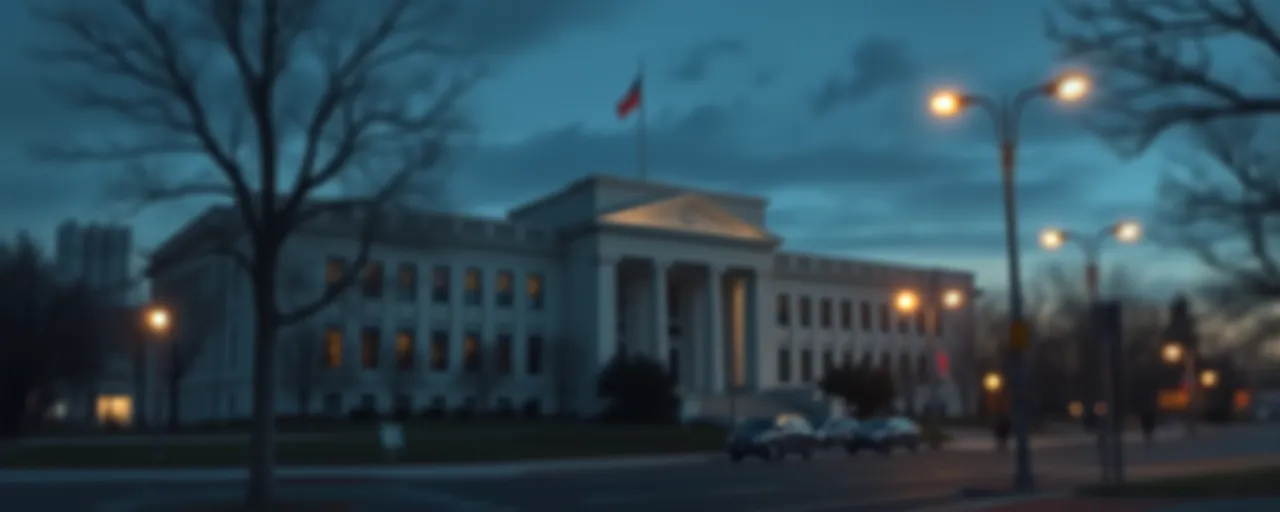A Sudden Move From the Top
A directive landed on the desks of federal agency heads this week, straight from the White House. Dated April 9, 2024, the memorandum zeroes in on Miles Taylor, a former Department of Homeland Security staffer, ordering an immediate suspension of his security clearance. The document accuses Taylor of betraying his oath by leaking classified information for personal gain, a charge that carries the weight of treason in its wording. It’s a bold accusation, one that’s already stirring up a storm of reactions across Washington and beyond.
Taylor’s not a household name for most, but his actions have left a mark. While at Homeland Security, he gained attention for writing under the pseudonym 'Anonymous,' penning a book that claimed a hidden resistance within the government worked to thwart the previous administration. The White House now says those moves endangered national security, pointing to his alleged misuse of sensitive data. For readers new to this world, it’s a real-life peek into the clash between loyalty, ambition, and the rules that keep secrets locked away.
What’s at Stake for Taylor and Beyond
The memorandum doesn’t stop at Taylor. It casts a wider net, directing officials to suspend clearances for anyone tied to him, including those at the University of Pennsylvania, where he’s been affiliated since leaving government. A review is also underway, led by the Secretary of Homeland Security, to dig into Taylor’s past actions and decide if they broke federal standards. The outcome could ripple outward, affecting how former employees navigate their post-government lives and what they can say without losing access to the nation’s secrets.
Legal experts are already weighing in. The Espionage Act, a century-old law cited in the memo, makes it a crime to spill national defense secrets if it risks harming U.S. interests. Proving that in Taylor’s case means showing intent, not just sloppy handling of classified files. Meanwhile, the directive’s reach into universities raises eyebrows. These institutions often partner with agencies on sensitive projects, training students and staff who need clearances. Tying them to Taylor’s fate could chill those collaborations, leaving some to wonder where the line between security and overreach lies.
A Tightrope Between Rights and Risks
This isn’t just about one man or one memo. It’s a fresh chapter in a long tug-of-war between free speech and national security. Former government workers have First Amendment rights, but they’re not absolute. Court rulings, like the 1968 Pickering case, say they can speak out on public issues as private citizens, so long as it doesn’t tank their job performance. Yet, the 2006 Garcetti decision tightened that leash, ruling that speech tied to official duties gets no protection. For Taylor, the question is whether his tell-all crossed into dangerous territory or stayed within his rights.
History offers plenty of parallels. Daniel Ellsberg’s 1971 leak of the Pentagon Papers exposed Vietnam War secrets and sparked a landmark free speech fight. Edward Snowden’s 2013 NSA disclosures fueled a global debate on surveillance, landing him in exile. Both cases pitted whistleblowers against laws like the Espionage Act, with outcomes hinging on intent and impact. Taylor’s critics say his leaks were self-serving, not a public service. His defenders argue he exposed truths that needed airing. The courts, if it gets that far, will have to sort it out.
Power Plays and Precedents
Presidential memos like this one aren’t new. The executive branch holds wide sway over security clearances, rooted in the president’s constitutional role as commander-in-chief. Past administrations have flexed that muscle too. In 2018, John Brennan lost his clearance after clashing with the White House, a move decried as political payback. Similar revocations have hit other high-profile figures, often igniting accusations of settling scores. What sets this directive apart is its speed and scope, targeting not just Taylor but his network, all before a full investigation.
That haste has some crying foul. Clearance decisions usually follow a process laid out in Executive Order 12968, with reviews and appeals. Skipping those steps risks painting the move as a power grab rather than a reasoned security call. On the flip side, supporters argue that swift action protects sensitive info in an age when leaks can spread like wildfire online. Either way, the memo’s fallout will test how far executive authority stretches, and whether it bends toward fairness or flexes for control.
Where It All Lands
The dust hasn’t settled yet. Taylor’s clearance is on ice, and a report on his past is in the works. What it finds could shape not just his future but how the government handles dissent from within. If the review flags real breaches, it might bolster the White House’s case and tighten the screws on other ex-employees. If it comes up empty, the backlash could grow, feeding claims of overreach and stifled speech. For now, agency heads are scrambling to comply, while onlookers wait to see what this means for the delicate balance of trust and transparency.
Stepping back, this saga hits on something bigger. It’s about who gets to hold the keys to America’s secrets, and what happens when those keys get misused, or when the lock gets changed. For everyday readers, it’s a window into a system that’s often opaque, where loyalty oaths, legal lines, and personal choices collide. The stakes are real: national safety on one side, the right to speak out on the other. How it plays out will echo beyond Taylor, touching anyone who’s ever signed up to serve.
